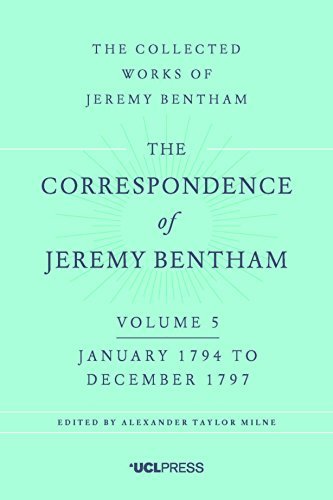What do you think?
Rate this book


The first five volumes of the Correspondence of Jeremy Bentham contain over 1,300 letters written both to and from Bentham over a 50-year period, beginning in
1752 (aged three) with his earliest surviving letter to his grandmother, and ending
in 1797 with correspondence concerning his attempts to set up a national scheme
for the provision of poor relief. Against the background of the debates on the
American Revolution of 1776 and the French Revolution of 1789, to which he made
significant contributions, Bentham worked first on producing a complete penal
code, which involved him in detailed explorations of fundamental legal ideas,
and then on his panopticon prison scheme. Despite developing a host of original
and ground-breaking ideas, contained in a mass of manuscripts, he published
little during these years, and remained, at the close of this period, a
relatively obscure individual. Nevertheless, these volumes reveal how the
foundations were laid for the remarkable rise of Benthamite utilitarianism in
the early nineteenth century.
Bentham’s life in the mid-1790s was dominated by the
panopticon, both as a prison and as a network of workhouses for the indigent.
The letters in this volume document in excruciating detail Bentham’s attempt to
build a panopticon prison in London, and the opposition he faced from local
aristocratic landowners. His
brother Samuel was appointed as Inspector-General of Naval Works and in
September 1796 married Mary Sophia Fordyce.
599 pages, Kindle Edition
First published December 1, 1981